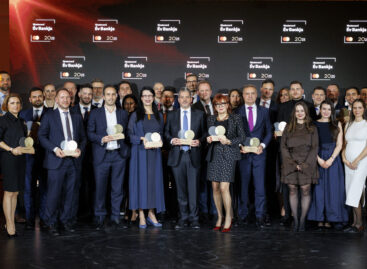Magazine: Ecommerce Summit 2019: Online shopping is the future
Ecommerce Hungary has organised its annual two-day conference, which is now called Hungarian Ecommerce Summit, in Visegrád for the 16th time.
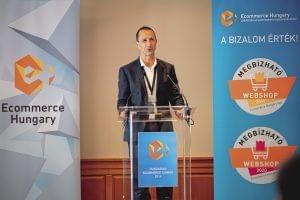
Sándor Nagy
president
Ecommerce Hungary
Another new idea from the organisers was inviting experts from abroad too.Ecommerce Hungary president Sándor Nagy gave the keynote speech, who told that e-commerce is now an integral part of the Hungarian economy. He underlined the fact that the sector is growing faster than the companies can keep track of, so one of the event’s goal was to give directors the chance to sit down and contemplate their own position and where the market is going.

Gergely Kis
partner of
eNet Internet Research and Consulting Kft.
Gergely Kis, a partner of eNet Internet Research and Consulting Kft. gave a presentation, which was titled CommerceWood 2018. He revealed that combined net sales of 7,000 online shops had amounted to HUF 669 billion in 2018.Hungarian shoppers spent another HUF 400-420 billion in online shops registered abroad. Estimation is that net sales will be 2.7 times bigger by 2023. The average basket value was HUF 15,400 in 2018 and more than half of the population purchased something online.
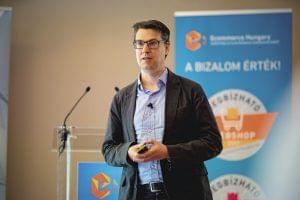
Dr. Jesse Weltevreden
professor
Digital Commerce
Dr Weltevreden Jesse, a professor from Digital Commerce spoke about B2C e-commerce expectedly reaching the EUR 623 billion value in Europe in 2019. Per e-shopper spending was the highest in Western Europe at EUR 1,346 in 2018. The proportion of visiting websites registered abroad was the highest in Luxembourg and it was lower than 10 percent in Hungary.
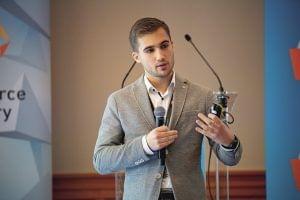
Máté Nemes
senior specialist of
MasterCard
E-commerce businesses know that the Payment Services Directive 2 (PSD2) will enter into force on 14 September, making Strong Customer Authentication (SCA) mandatory. Máté Nemes, senior specialist of MasterCard stressed that retailers must do their best to help customers with information and the necessary technology in switching to the new system.
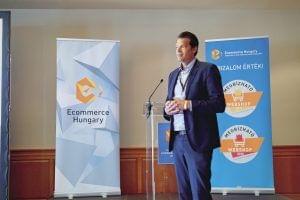
Florian Seikel
managing director
Händlerbund
Florian Seikel, managing director of Händlerbund gave an insight into the German e-commerce market; in Germany the proportion of internet users is 91 percent and 79 percent of Germans bought something online in 2018.

Petr Sochora
managing director of
Packeta Group
Petr Sochora, managing director of Packeta Group compared the Czech and the Hungarian markets from an e-commerce perspective. There are 41,000 online shops in the Czech Republic and only 5,000 in Hungary. Czech consumers are spending more than EUR 5 billion, while spending in Hungary is only EUR 1.4 billion. Surprisingly the sales growth was 18 percent in both countries.
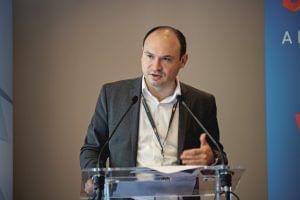
Oleg Roibu
vice president
Román Ecommerce Szövetség
Oleg Roibu, vice president of the Romanian E-commerce Association spoke about the Digital Single Market (DSM) of the European Union. The DSM strategy came to life in 2015, to create better access to online products and services all over Europe. Mr Roibu opined that it was important to lay down international e-commerce rules that both customers and retailers can trust.
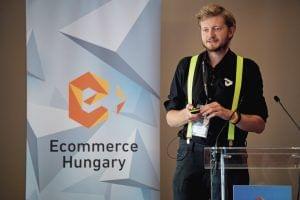
Honza Mayer
managing director of
Dataweps
Honza Mayer, managing director of Dataweps gave participants an overview of different sales strategies and retailer attitudes in the region. In connection with Hungary he mentioned sales growth, competition, efficiency and automation.

Ferenc Surány
managing director
M. I. Solution
Ferenc Surány, managing director of M.I. Solution revealed that the consumption habits of any online store’s visitors can be mapped, compared and even forecasted. His company developed an artificial intelligence software solution for online shop analytics.
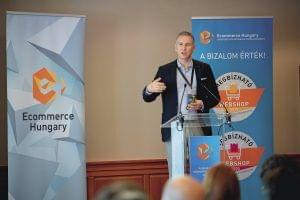
Lénárd Horgos
founder of
Absolvo Consulting
In the afternoon worked continued in a section for investors and Lénárd Horgos gave a very interesting presentation. The founder of Absolvo Consulting spoke about selling and buying companies from an e-commerce perspective. He pointed out the fact that in Europe it is in the CEE region that the biggest development is likely to occur in investments, and Hungary is in the best position to profit from this.
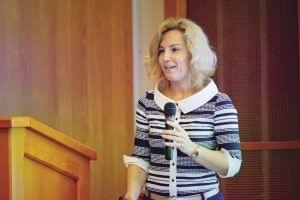
Keszthelyi Nikoletta
deputy state secretary of
the Ministry for Technology and Innovation (ITM)
In the section that focused on customers Nikoletta Keszthelyi, deputy state secretary of the Ministry for Technology and Innovation (ITM) shed light on the new directions in consumer protection. She introduced the New Deal for Consumers (NDC) recommendation package and how it would affect e-commerce. The NDC must be integrated into the Hungarian legislation until 2021.
After an award ceremony the topic was logistics.
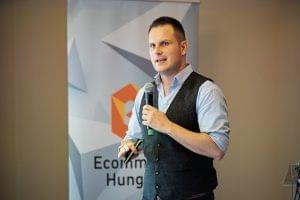
Norbert Madar
consultant of
GKI Digital
Norbert Madar, a consultant at GKI Digital talked about logistics service providers and customer satisfaction levels in Hungary and abroad. He called attention to the fact that the digital shopping experience is becoming more important, and at the same time consumer expectations are growing in the area of parcel delivery. Meanwhile logistics needs to cope with the problem of the workforce shortage too. He showed a 2019 ranking of companies doing home delivery of B2C online order parcels: GLS was the No.1, followed by MPL and DPD.
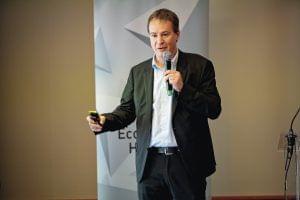
Gergely Farkas
managing director
GLS
Gergely Farkas, managing director of GLS was the next speaker. He revealed that every day they deliver to more than 100,000 addresses, 770 pick-up points and 20 parcel lockers. Home deliveries represent 95 percent of all deliveries and the proportion of unsuccessful deliveries is 7.36 percent. He told that returning a product costs a lot of money for delivery companies. In his view it would be important to offer as many parcel collection options to shoppers as possible.
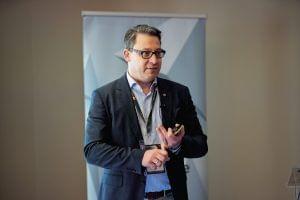
Bengyel Ádám
founder and CEO
Foxpost
Ádám Bengyel, founder and CEO of Foxpost gave a presentation about parcel logistics. He made it clear that a delivery man must get to 100-120 addresses a day, and delivery companies don’t have enough workers. Automation is the way to go, as it can already be seen that collecting a parcel from a locker is cheaper than home delivery. He added that free delivery is disappearing as delivery costs are increasing. The conference ended with a roundtable discussion where the representatives of MPL, GLS, Foxpost, Csomagküldő.hu and Sprinter shared their experiences. //
Related news
The price of growth – the well-working Coop approach: An interview with Dr István Rédei, president-CEO of COOP Star Zrt.
🎧 Hallgasd a cikket: Lejátszás Szünet Folytatás Leállítás Nyelv: Auto…
Read more >Related news
OKSZ on the extension of the margin stop decree
🎧 Hallgasd a cikket: Lejátszás Szünet Folytatás Leállítás Nyelv: Auto…
Read more >PwC Consumer Loyalty Survey now available for pre-order
🎧 Hallgasd a cikket: Lejátszás Szünet Folytatás Leállítás Nyelv: Auto…
Read more >

